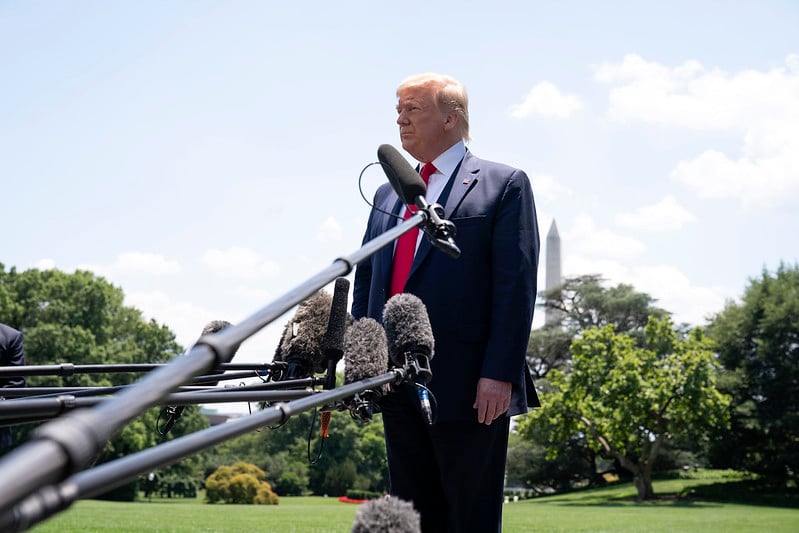President Donald Trump announced plans to mandate that midstream oil pipeline companies use American steel for all their pipelines, and companies like Energy Transfer Partners (ETP +0.00%) and Kinder Morgan (KMI +0.55%) are not happy about it.
In this clip from the Industry Focus podcast, Motley Fool energy analysts Taylor Muckerman and Sean O'Reilly explain why the companies aren't pleased and what'll probably end up happening with this proposed legislation.
A full transcript follows the video.
This video was recorded on May 4, 2017.
Sean O'Reilly: President Donald Trump --
Taylor Muckerman: He's making America great again.
O'Reilly: He is, and he's trying to get our midstream oil pipeline operators to use American steel for all the pipelines. The industry, which includes companies like Energy Transfer Partners and Kinder Morgan, have a few things to say about that and have sent letters to the executive branch noting how it's not so simple. I'm sure you have a few thoughts here, but I just wanted to give a little bit more context. On average, according to the letters, U.S. pipelines are made with about 30% domestic steel, and the rest comes from abroad. This isn't necessarily U.S. pipeline companies' faults. No U.S. companies, for example, make valves that meet the requirements set by the API, which is the American Petroleum Institute. So they have to go abroad. It's not an option. What's a pipeline company to do? Send him an angry letter?
Muckerman: Exactly what they are doing, trying to get him to delay the rules or outright do away with them. We're already, as you said, in some of these basins, short on pipelines, and if these requirements are instated by the U.S. Commerce Department, they're not going to be able to build them, either efficiently or cost-effectively. So the start dates for these pipelines are going to be pushed out or just canceled altogether. You see this for oil and natural gas pipelines. It's not just oil pipelines; it's any pipeline. They're trying to mandate all American-sourced products.
O'Reilly: Being the good old American patriotic boy that I am, I do wonder why U.S. steel companies and component manufacturers don't make these things. Is there a patent over in France? Do you know what I mean? Couldn't they conceivably do it?
Muckerman: They probably could, I don't know. But then again, it all boils down to profitability. Can they do it and make a profit off it? That might be why they're not doing it in the first place. Capitalism at its finest right here; they're not going to make something if they can't --
O'Reilly: Oh, this is the econ class, the comparative advantages. Company A is good at making wheat, and Company B is really good at making pipeline valves. We're going to trade our wheat and our valves.
Muckerman: Basically, yeah. It's a shocker when you can send valves over on a massive cargo ship from a different country and produce them cheaper, therefore you can sell them cheaper, therefore pipeline companies can buy them more cheaply.
O'Reilly: And make more money.
Muckerman: Or at least break even. There's a lot going into all this that I don't think was originally considered.
O'Reilly: It sounds nice on its face.
Muckerman: Yeah. Without getting political, this is a trend, where there are overarching promises where the nitty-gritty isn't exactly realized or talked about until it's time to enforce it, and then companies are like, "You guys are way off base here; this is not possible." And if you enforce this, it's going to hamper U.S. energy production and distribution.
O'Reilly: Right. Which is, as we saw last week with the Permian, we just need to get these things built, now.
Muckerman: Yeah, exactly.






